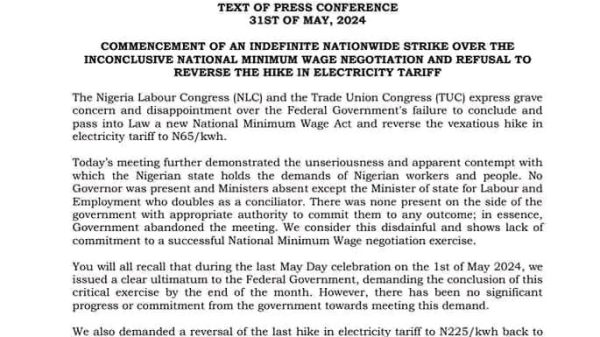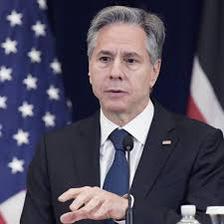VP SHETTIMA’S G77 AND CHINA SUMMIT: WHAT BENEFITS FOR NIGERIA?
By Ussiju Medaner
The 2023 G77 and China meeting were held in Havana Cuba days ago. Nigeria was ably represented by the Vice President, His Excellency Kashim Shettima-led delegation. So many Nigerians would not comprehend the reason for these numerous ongoing engagements on the international cooperative fronts and the benefits they accumulate for the country both in the short- and long term.
Our world has become a global community; no nation or individual could survive any longer in isolation without coordinated and intentional interrelation with others across borders. That is what the concept of globalisation is. We now rely and survive on the dramatic growth that has evolved in cross-border investments and international trade, as well as the explosive growth in global communications and technology. Economically, foreign direct investment (FDI) flows, which totalled $160 billion in 1991, soared to $1.1 trillion in 2000 and have almost tripled by now. The volume of international trade also expanded dramatically (about 17 times in the last 50 years), while trade in raw materials sourced from foreign countries has grown even faster than trade in finished goods, making up about a third of world exports and imports. So, we are nothing without the rest of the world.
The world, our world, has become the center of dramatic growth in cross-border investment and international trade over the past two decades, combined with the explosive growth in global communications and technology; so interwoven that survival without the latter is near impossible. Even the greatest and most developed nations of the world are the most dependent, contrary to the view of many who see globalisation as an attempt at continued enslavement of the developing world.
Like many other international cooperation groups, the group of 77 (G77) at the United Nations (UN) is a coalition of 135 developing countries, designed to promote its members’ collective economic interests and create an enhanced joint negotiating capacity in the United Nations. The group was founded on the 15th June 1964, by 77 non-aligned nations in the “Joint Declaration of the Seventy-Seven Countries” issued at the United Nations Conference on Trade and Development (UNCTAD).
Nigeria’s membership of the group was hinged on the belief that the Group of 77 would serve as a united base to seek multilateral solutions to some of the issues that have been on the international agenda for quite a while such as the onerous external debt burden of many developing countries, inadequate official development assistance, poverty alleviation including, insecurity, and many others.
The developing countries need to establish a greater presence and influence in the United Nations architecture; otherwise, the developed nations would continue to exert their influence to more disadvantage of the rest of the community.
This is why the G77 is important and must coordinate to succeed.
The developing nations have received a much larger and skewed contribution of poverty, climate distortion, insecurity and general underdevelopment; which some developed members of the United Nations are instrumental to and would wish to further their interests in perpetuity.
While we must cooperate at the international level, we must also be able to negotiate mutually beneficial terms of cooperation and establish cooperation as equals and not subordinates. The union of G77 must go ahead in realising its agenda to create its force within the forces and ambit of the United Nations for developing countries.
With a stronger G77, it is very possible that the reemerging challenge of military takeover across the African continent can be put to rest.
To gain ground and exert the influence of our population and endowments globally, we must organise our interests and diplomatically influence the rules of the game to our favour; that is, systematically calling for a redirected new global order to favour our interests.
After all, that has been the exact thing the developed nations have been doing hitherto; they have perennially and over time organised the world to their interests.
Until the G77 and similar alignments of developed nations recognised that the former’s members have been the major victims of global multidimensional crisis ranging from terrorism, poverty, abusive unequal trade, global warming and a list of others; and therefore be better organised to take a stand against repression and reject the anomalous status quo, there is no way we can grow as a nation, region and blocks as we should.
It would take a very strong presence of the developing countries at the United Nations to stop countries such as France’s indirect continuous colonisation of its former colonies, and it would take such a strong presence and influence to impress it on the known world powers that we are equals and be treated as equals on all tables.
This year’s G77 and China summit is very significant to the developing countries within the United Nations aspirations; the theme, “Current Development Challenges: The Role of Science, Technology and Innovation,”bothering on science and innovation if well cultivated and harnessed is aptly capable of setting the base for technological developmental transformation of developing nations.
The Nigeria delegate to the summit led by the Vice President, HE Kashim Shettima, recognises that the globe is presently faced with numerous challenges of which members of the G77 take the lion’s share and that the only pathway to a working solution is cooperation and continuous cooperation.
The Vice President submitted at the summit that the developing nations are becoming overwhelmed with tensions emanating from insecurity on many fronts as can be inferred in his words:“We must not allow geopolitical tensions in any corner of the world to deter us from forging a collective and mutually advantageous path forward – a roadmap of shared prosperity and progress.”
The fact is that no amount of initiative from the developed nations within the United Nations to address the global challenges would effectively address the problems of the third world countries and the developing nations. On environmental matters, we must bear the responsibility to create indigenous solutions to the greenhouse gas emissions problem, because the disparity in per capita emission between us and the developed nations is too wide for us to embark on the same solution pathways. It is the same way we cannot wait to have the same solution policy to the problem of multidimensional poverty ravaging developing nations. The structure and character of poverty differ across the lines that separate us from the developed nations, and it is absolutely impossible for the wealthier nations to pay sufficient and genuine attention to the eradication of poverty from our nations. These are what we must do for ourselves.
The Nigerian Vice President, Kashim Shettima stated this much and unequivocally expressed Nigeria’s commitment to partner effectively with member states G77-+ towards positioning both G77 and China to address the many inequalities and listed global challenges.
He also submitted that “We shall champion initiatives that harness the potential of science, technology, and innovation to confront economic challenges, particularly within the global south.”
The crux of Nigeria’s position at the summit remains that while we are doing our part and would continue to forge a path through the much-needed paradigm shift towards science and technological advancement as a springboard for development and to shape the course of our nation, we will remain permanently open to forging cooperative alliances that enable our desires to maximise the opportunities that abound in our enclaves and across borders of all friendly nations.
Now that we are back from the summit what next?
This is the time for real actions that should not be clouded with politicking or face shows.
If we must effectively bring home the gains of the G77 objectives; we must begin from the theme of this year’s summit, and set the ball rolling for indigenous development of science and technological bases that would effectively and efficiently employ our resources, both natural, and man-made, including our teeming population.
If we effectively redesign our science and technology base as a nation, we will begin to do better, for instance, agriculturally, our responses to poverty would become more positive, our fight against insecurity would receive a huge boost of technological advancement and superior, jobs would be created across the key value chains for our population and we would become better as a people and a nation.
It is at this point that we would be able to change the pattern of global trans-border investment motion and command a commensurate share of global FDI. If we move together with other developing nations that constitute the G77 group to achieve the same feat, then the status quo would literally change; till now, the developed nations of the world control and account for the bulk share of the increase in cross-border investment and trade resulting from globalisation.
All of the developing countries taken together, including the six big Southeast Asian exporters, with the exception of China, attracted just over 20 per cent of total FDI and accounted for only 27 per cent of world exports of manufactures.
That is why we must begin to act individually and collectively to change.
That is what our cooperation should work together to change.
That is the position of Vice President Shettima at the summit.
For Nigeria, we must leverage on science and technology as a tool to suppress and root out insecurity on our lands.
The need to increase the speed of communication among the population and the security apparatus, the need to locate and pinpoint positions of bandits, insurgents and other criminal elements, and as well as the need to terminate them with precise accuracy would all boil down to improving science and technological advancement,is what the just concluded G77 and China summit has reminded us about that we must work to develop.
And that we must return home to begin taking proactive measures to address if we are serious about winning the war against insecurity in Nigeria.
The office of Vice President Shettima is uniquely at a vantage to drive this vital renewed initiative.
The Office of the Vice President which plays a pivotal constitutional role in directing the economic affairs of the nation must this time around become more active in this dispensation.
Indeed, Vice President Shettima is known to be passionate about the growth and development of Nigeria – a true pan-Nigerian.
However, Mr.Vice President must this time recognise the very clear different structure and character of poverty and insecurity in the north and some parts of southern Nigeria.
An assessment of the new presidential aides – including those of the Vice President – concerning whether they could pursue and recommend top-notch recommendations to the respective regional challenges of the country has become imminent. How well does each of the appointees or as a collective understand the crux of the matter raised by Mr. Vice President? they must adequately represent the respective blocs of changes and paradigm shifts.
And finally, the Vice President must be sensitive to the media in terms of carrying the general public along and getting rich inputs from the broad spectrum of citizens. This is because relying on the present media as it is without establishing a strong presence may undermine his efforts in helping to position Asiwaju’s administration on the right track. For instance, the Vice President’s outing in all fairness has received somewhat underwhelming coverage by some sections of the mainstream media despite the significance of all his intestinal engagements. Thus, Nigerians must be reached en masse to broadly participate in the overarching objectives of the G77 Plus China summit going forward and the media must be awakened in this regard. Vice President Shettima’s office is hereby advised to take note of this important factor.
GOD BLESS THE FEDERAL REPUBLIC OF NIGERIA.














































